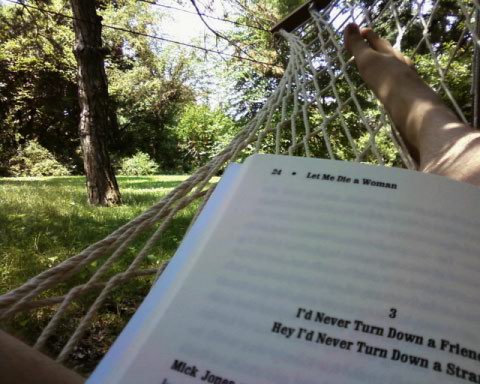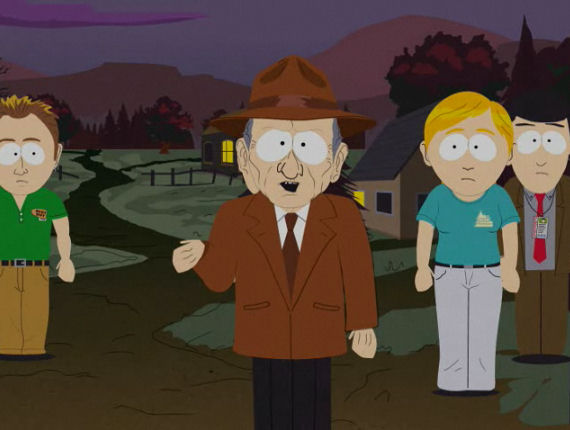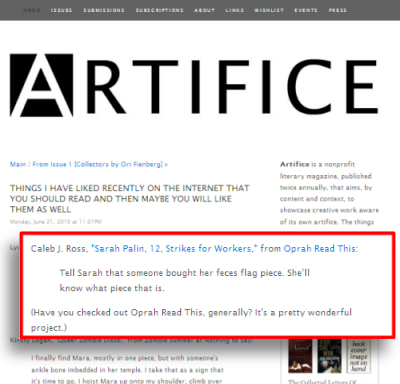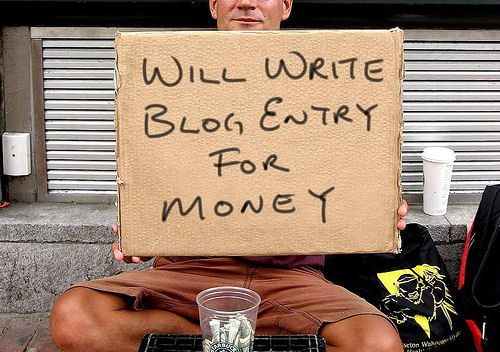Back in February during the AWP Conference in Denver, CO, I read a non-fiction piece called "The Author Who Gets Free Drinks: a (Hopefully) True Story." Fine man extraordinaire Stephen Krauska was in the audience. After the reading, I spoke with him for a bit, and got the (eventually proven true) impression that he's an all around damn nice guy. So nice in fact that for the first issue of his (and co-editor Claire Suellentrop's) Cannoli Pie Magazine he asked to print the AWP piece. That issue is now live at the Cannoli Pie homepage. Download the .pdf, give the story a read, and be sure to listen to the AWP reading, available as part of The Velvet Podcast. Oh, and for those curious, yes, it worked. My next piece will be called "The Author Who Gets Lap Dances and Pizza For Free Every Morning."
Tag Archives newsletter
Episode #006 of The Velvet Podcastjust went live a few hours ago. Gordon Highland, Jesse Lawrence, Logan Frost, and Stephen Graham Jones talk about: Discussion of other mediums like film and television has always been an important aspect of The Velvet, because we find that our shared tastes in books translates well to art and entertainment in general. Inspired by one of our most popular forums, this episode features three Velvet staffers and author Stephen Graham Jones waxing about the big and small screens, both as consumers and creators, cinners and cineastes wading through the Cinemuck. Please, give it a listen. Subscribe via Feedburner, Podcast Alley, or iTunes.
In response to Mr. Highland’s challenge to come up with a counter point to my list of the fringe benefits of writing, I offer to you, the fringe detriments of writing: Not enough people worship me. Jesus had a whole pool of suckers to write for him. Am I comparing myself to Jesus? Yes. Which brings me to... An inflated ego brings nothing but misery. But on someone as awesome as me, misery looks damn good. Something can easily take years to write, but can be read and forgotten in hours (wow, that was a bit of an honest one. I wasn’t expecting that) If you are so brash as to call your writing an art-form, very few people will be interested. People who don’t care for art will change the subject. People who don’t write but enjoy art will simply not believe you. And people who do write and…
I bring you #3 of a hopefully long-lived series: Kansas City Reading Coves. When I can, I like my coves like my Republican nudists: free swinging and white. Today’s cove: my hammock – my house Simply put, my hammock is the greatest reading cozerie since the 70's invented bean bag chairs. I could sit here for hours, and often I do, reading, smoking cigars, drinking beer, and swinging only as much as the wind wants me to. The hammock is my heaven on Earth. Take that God! If you are ever in my area, call ahead and the hammock is yours for the afternoon...unless I am already occupying it. We could share, I guess. Rankings out of 10: Smoking accommodations 10 It's outside! It's my effing house! Furniture comfort 10 Have you ever sat in a hammock? Like a cloud, people. Quiet level 8 Lawn mowers cause a bit of…
(part of my ongoing Unexpected Literary References series) When watching a rerun of the "Britney's New Look" episode of South Park a few nights ago, I caught an allusion to the famous short story, "The Lottery," by Shirley Jackson (minute 16:36 in the clip here). Which makes me wonder, in what other unexpected places do literary references and allusions appear? Staying in the South Park world, there is the "A Dickens Classic" episode, which is an overt retelling of Charles Dickens' Great Expectations. More recently, The episode "The Tale of Scrotie McBoogerballs" is an extended commentary on Catcher in the Rye's controversial reputation. But beyond those borders, below are a few I remember (having been refreshed via a few internet searches). What others are there? The Simpsons ep Treehouse of Horror V | The "All work and no play makes Jack a dull boy," from Stephen King's novel, The Shining, is…
And I like you, Artifice Magazine. A bit more praise here for the Oprah Read This >> Oprah, Read This project.
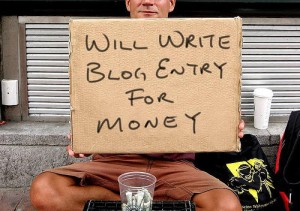 Disclaimer: I am far from a career author. I’ve made enough money to buy a few fifths of whisky and some diapers for my baby, so needless to say I’ve got a long way to go. The following plan reflects this outsider (re: possibly ignorant) perspective.
The idealized author spends his time alone, churning out typewritten manuscripts to meet constant deadlines. He drinks. Probably smokes. He’s respected. He vacations in tropical seclusion, but still, even with the changed view, he writes. He has no day job. He is an author. Writing puts his kids through college.
There is a reason this image contains a typewriter. Much like the machine itself, the idealized author is all but extinct. I think a lot of writers would like to go back to this model. Is it possible to not just retain the author career, but to make it thrive?
Given the following set of assumptions, I believe it would be possible to bring back the author career:
Disclaimer: I am far from a career author. I’ve made enough money to buy a few fifths of whisky and some diapers for my baby, so needless to say I’ve got a long way to go. The following plan reflects this outsider (re: possibly ignorant) perspective.
The idealized author spends his time alone, churning out typewritten manuscripts to meet constant deadlines. He drinks. Probably smokes. He’s respected. He vacations in tropical seclusion, but still, even with the changed view, he writes. He has no day job. He is an author. Writing puts his kids through college.
There is a reason this image contains a typewriter. Much like the machine itself, the idealized author is all but extinct. I think a lot of writers would like to go back to this model. Is it possible to not just retain the author career, but to make it thrive?
Given the following set of assumptions, I believe it would be possible to bring back the author career:
- Content will continue to outweigh consumption
- The marketplace is spoilt by free content, and much of that content will continue to be free
- eBooks/eReaders will be a primary content medium within the next decade
- The cost to produce and distribute market-quality products will continue to fall
- Consolidate the agent and publisher roles. Basically, this combined entity should act as a time and beaurocracy manager for authors. Today, authors have the ability to publish and distribute their own content without the help of agents and publishers. If this Pub/Agent composite can give authors time to write, then they will ultimately be given the sort of consistent product that the marketplace loves. Marketing thrives on trends. Giving authors time is the way to nurture trends.
- Increase author royalties. As media becomes electronic, the savings on overhead and distribution must be passed on. Court your talent, publishers. I’ve read the arguments against electronic media being cost-savers for publishers, and I just don’t believe them.
- Embrace the eBook paradigm shift. As a reader, I haven’t yet fallen in love with eBooks. As a writer, I am very excited by the possibilities. Instead of fighting to keep print alive, fight to make eBooks thrive. eBooks have the potential to increase the pool of readers, much as the iPod did for music enthusiasts.
- Brand yourselves as independent records labels do. Make fans out of your press, not just out of your authors. I won’t go into much depth here about this, but we do have an episode forthcoming at the Welcome to The Velvet podcast on this topic.
- Provide consistent and brandable content. As Dan Holloway says in the comments at Jane Smith’s How Publishing Really Works blog, “If you are writing for the art, by all means try your hand at getting an agent, but don’t be upset if you don’t get one – and if the feedback is that you should be more commercial in order to get one, then make the decision – do you want to write for the pay packet, or do you REALLY want to do it for the art? And if it’s the latter, don’t expect to be picked up, or blame the publishers when you aren’t.”
- Prove that you can provide that content. As Jane Smith says in a response to the above comment, “I think that a big reason that most writers make such a paltry amount is that there are lots of people out there who call themselves writers but who only really dabble with writing: they sell an article every now and then, take several years to write just one book; sure, they’re writers–but not full-time, serious writers.”. A career author must write as though it is a career.



